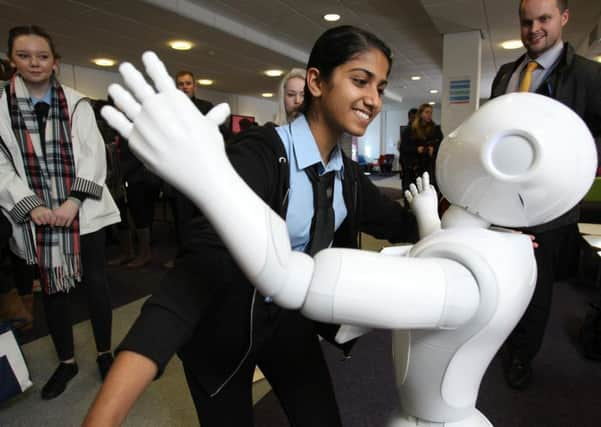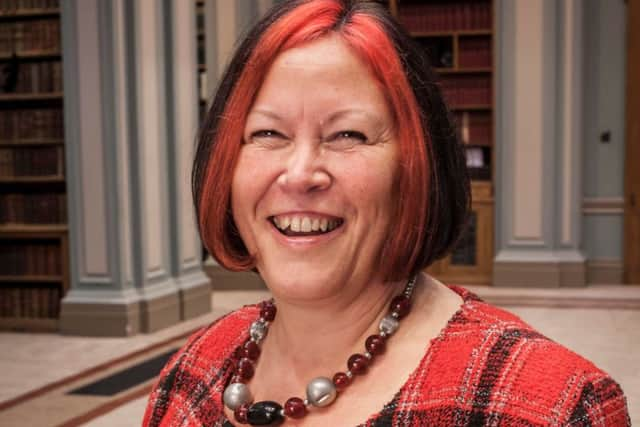Lesley Yellowlees: Little progress in persuading women to increase their STEM presence


Using the RSE’s influential report of 2012 on women in STEM as a baseline, TAOT 2018 reviews what progress has been made in the last six years to increase the number of women working and studying in STEM in Scotland.
The 2012 report highlighted the ‘leaky pipeline’ where almost three-quarters of female graduates were lost from STEM. The issues of gender equality and the gender pay gap are higher up the political agenda than ever before; while the economic imperative to retain and promote top talent, regardless of gender, has become starker.
Advertisement
Hide AdAdvertisement
Hide AdBut has this translated into a perceivable shift in culture that encourages women to pursue careers in STEM and enables them to progress at an equal rate to men? This is precisely the question that the TAOT 2018 review group set out to examine. TAOT 2018 has gone further than the 2012 study by exploring every stage of the ‘pipeline’ from the early years. This has enabled the review to systematically consider what needs to be done to further advance gender equality in STEM. TAOT 2018 considers what has – and has not – changed for women working in STEM in Scotland today, and it makes recommendations for addressing the under-representation of women in STEM.


While much effort has been made to address gender inequality in STEM, this has resulted in a mixed picture of progress. The proportion of female STEM graduates working in STEM industries has increased from 27 per cent in 2012 to 30 per cent in 2017. The number of Scottish university STEMM departments (includes medicine) holding Athena SWAN awards for action on gender equality has increased from a total of five in 2012 to 73 by 2018. There has also been a notable increase in the proportion of female board members of FTSE 100 construction companies, rising from 7 per cent in 2011 to 30 per cent by 2017.
However, by other indicators, progress has been slow or non-existent. The proportion of female pupils taking Computing-related courses equivalent to Standard Grade has declined from 32 per cent in 2012 to 18 per cent in 2018. While in most STEM subjects across colleges and universities, the proportion of female students has seen, at best, incremental improvement and, at worst, further decline (eg from 54 per cent in 2012 to 43 per cent in 2017 in college-level IT frameworks).
The paucity of high-quality flexible and part-time roles, the impact of career breaks on long-term career prospects, expensive and inflexible childcare and the persistent gender pay gap are all obstacles to gender equality in the workplace.
Many initiatives aimed at improving gender equality in STEM have focussed on addressing the consequences of education and training systems and workplaces that have historically been male-dominated. However, gender stereotypes are reinforced from birth, through expectations that are placed on children’s behaviour, interests and abilities. It is therefore clear that a step change in real gender equality, in STEM and elsewhere, will require a fundamental shift in societal and institutional perceptions of gender ‘norms’. Challenging gender inequality is not a ‘women’s problem,’ nor that of any one individual sector. It requires universal buy-in, underpinned by leadership at all levels.
The following are crucial to addressing gender equality in STEM:
•The need for leadership at all levels to drive cultural change that promote equality.
•The need for better data that allow real understanding and tracking of the extent of gender inequality, barriers to progress and appropriate solutions. This could include mapping interventions, impact and cost-effectiveness, with a view to scaling-up successful interventions.
Advertisement
Hide AdAdvertisement
Hide Ad•Behavioural change, including greater use by employers of proportionate positive action measures that redress the balance of female under-representation.
•Strong, sustained partnerships between educators and industry that deliver high-quality, inspiring and inclusive STEM learning.
The RSE is grateful to all those organisations and individuals who have engaged with the review. The publication of the report is not the end-point. The RSE is developing a programme of activities in order to support collaborative actions to tackle gender inequality in STEM. We are keen to work in partnership with government, those in the public and third sectors, business and education providers.
The TAOT 2018 report and more information about the review are available from the RSE website: https://www.rse.org.uk/inquiries/womeninstem-2018/
Professor Lesley Yellowlees CBE HonFRSC FRSE is a Fellow of the Royal Society of Edinburgh and Chaired the Tapping All Our Talents 2018 Review Group.